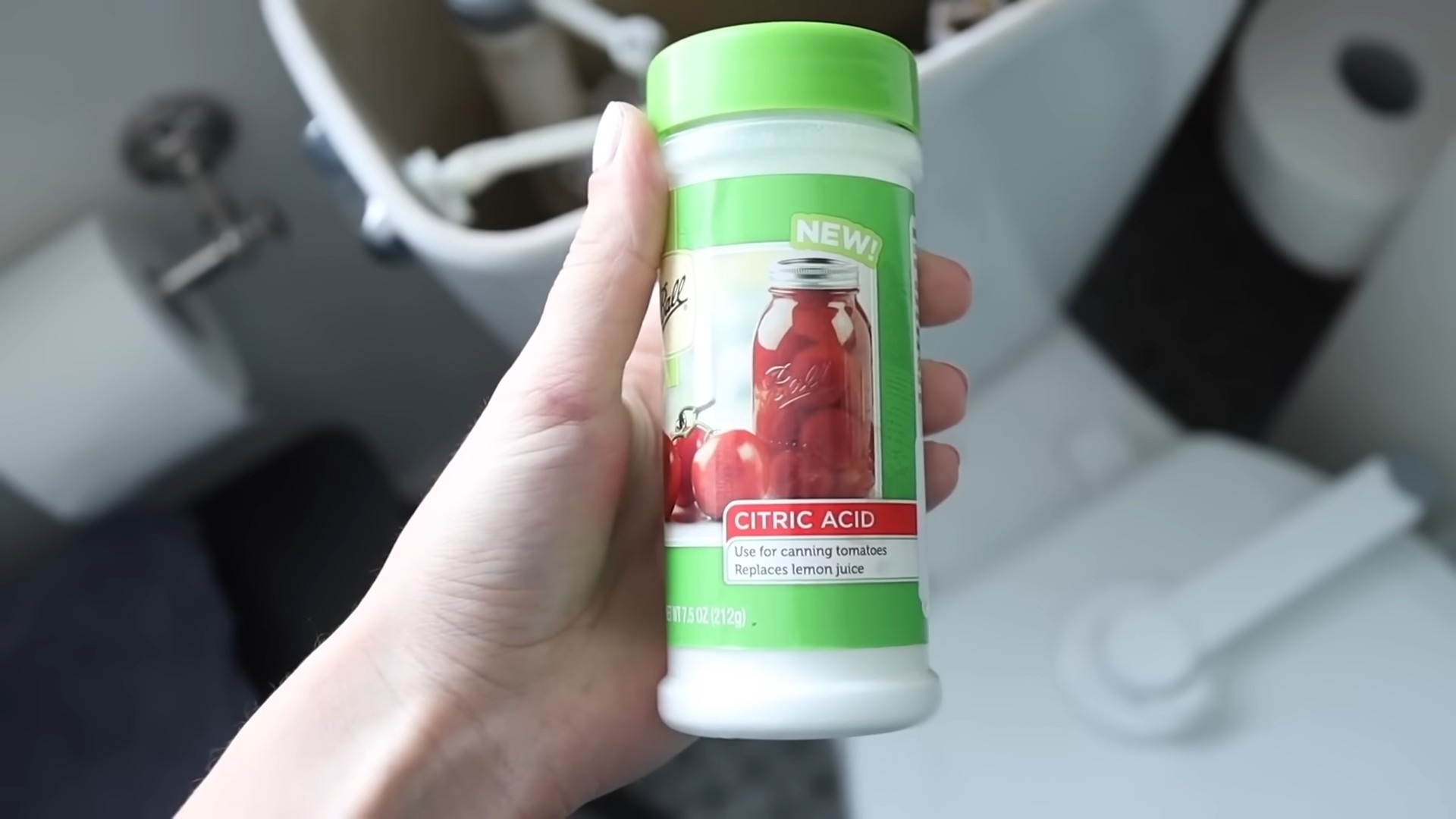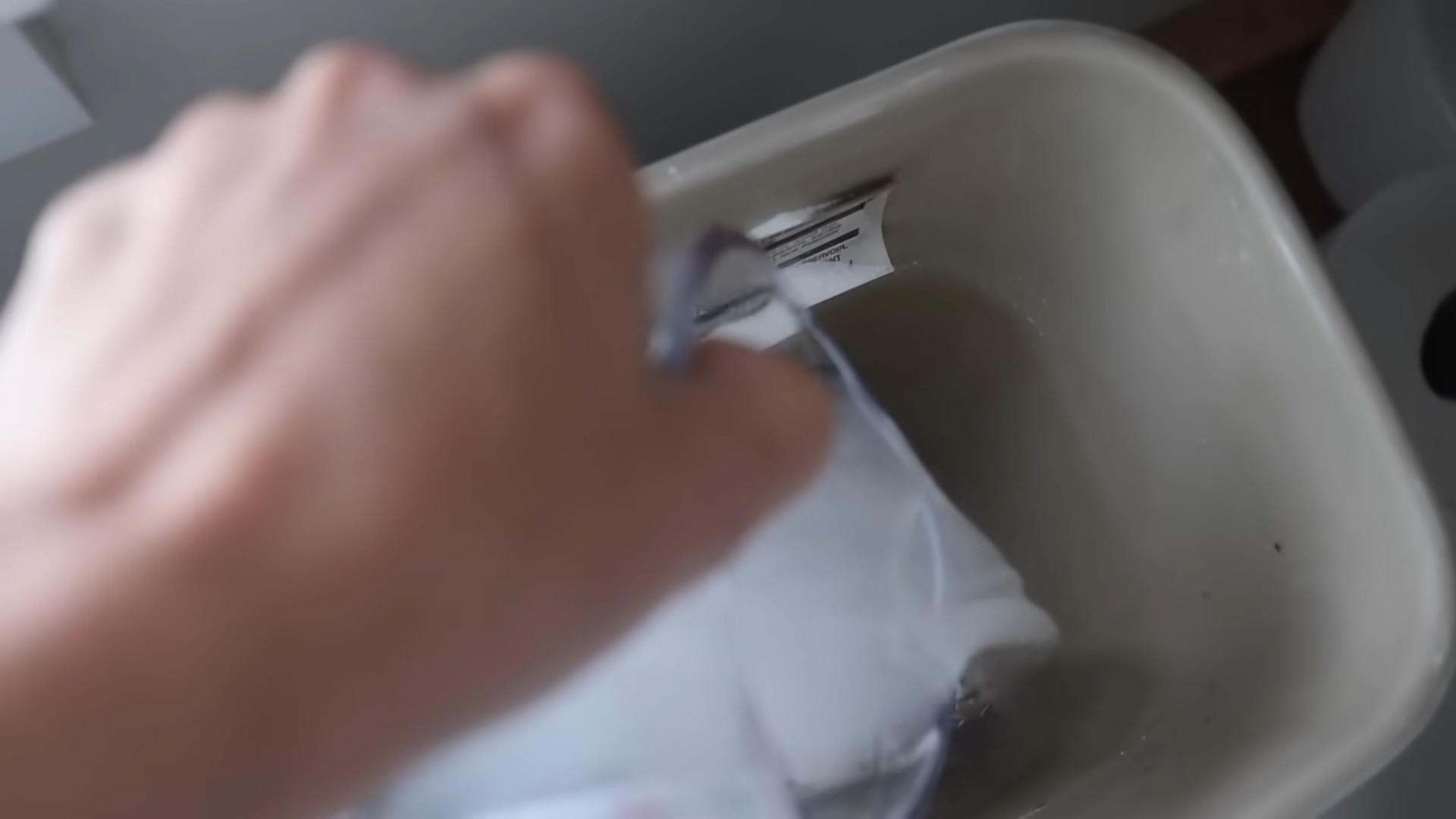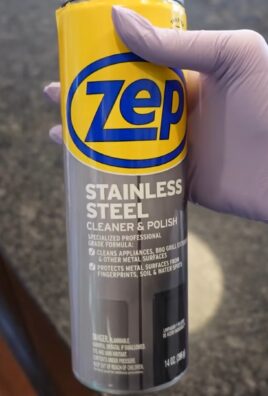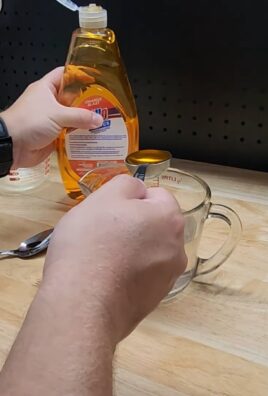Citric Acid Home Cleaning: Unlock the sparkling potential of your home with this all-natural powerhouse! Are you tired of harsh chemicals and their lingering odors? Do you dream of a clean, fresh home without breaking the bank or harming the environment? Then you’re in the right place! I’m about to share some incredible DIY tricks using citric acid that will revolutionize your cleaning routine.
Citric acid, derived from citrus fruits like lemons and limes, has been used for centuries. Historically, our grandmothers relied on lemon juice for everything from whitening clothes to polishing brass. This tradition highlights the enduring effectiveness and versatility of this natural cleaner. Today, we’re rediscovering its magic, armed with a deeper understanding of its properties and even more creative applications.
In today’s world, many people are looking for eco-friendly and budget-friendly alternatives to commercial cleaning products. That’s where citric acid home cleaning really shines! It’s a fantastic way to reduce your exposure to harmful chemicals, save money, and achieve a sparkling clean home. I’ll show you how to tackle everything from stubborn hard water stains to grimy appliances with simple, effective DIY solutions. Get ready to ditch the chemicals and embrace the power of nature!

DIY Cleaning Powerhouse: Unleashing the Magic of Citric Acid
Hey there, fellow DIY enthusiasts! I’m so excited to share one of my favorite cleaning secrets with you: citric acid. This natural wonder is a game-changer when it comes to tackling tough stains, grime, and hard water buildup around the house. Forget harsh chemicals – citric acid is effective, eco-friendly, and surprisingly affordable. Let’s dive into how you can harness its cleaning power!
What is Citric Acid and Why Use It?
Citric acid is a weak organic acid found naturally in citrus fruits like lemons and limes. It’s a fantastic cleaning agent because it’s:
- Biodegradable: It breaks down naturally, making it much kinder to the environment than many commercial cleaners.
- Non-toxic: Safer for you, your family, and your pets.
- Effective: Cuts through grease, dissolves hard water stains, and removes rust.
- Deodorizing: Leaves a fresh, clean scent.
- Affordable: A large bag of citric acid powder goes a long way.
Getting Started: Essential Supplies
Before we begin, gather these supplies:
- Citric acid powder (available online or in some grocery stores)
- Spray bottles
- Microfiber cloths
- Gloves (optional, but recommended for sensitive skin)
- Measuring spoons or cups
- Water (distilled water is best for longer shelf life)
- Optional: Essential oils for added fragrance (lemon, lavender, tea tree are great choices)
DIY Citric Acid Cleaning Recipes
Here are some of my go-to recipes for using citric acid around the house:
1. All-Purpose Cleaner
This is my everyday cleaner for countertops, sinks, and other surfaces.
Ingredients:
- 1 tablespoon citric acid powder
- 2 cups water
- Optional: 5-10 drops of your favorite essential oil
Instructions:
- Mix the solution: In a spray bottle, combine the citric acid powder and water. Shake well until the powder is completely dissolved.
- Add essential oils (optional): If you’re using essential oils, add them now and shake again.
- Spray and wipe: Spray the solution onto the surface you want to clean and let it sit for a minute or two.
- Wipe clean: Use a microfiber cloth to wipe the surface clean.
2. Hard Water Stain Remover
This is perfect for tackling those stubborn hard water stains in your bathroom and kitchen.
Ingredients:
- 2 tablespoons citric acid powder
- 1 cup hot water
Instructions:
- Dissolve the citric acid: In a spray bottle or bowl, dissolve the citric acid powder in the hot water. Stir until completely dissolved.
- Apply to the stain: Spray or pour the solution onto the hard water stain.
- Let it sit: Allow the solution to sit for 15-30 minutes, depending on the severity of the stain. For really tough stains, you can even let it sit overnight.
- Scrub (if needed): If the stain is still present, scrub gently with a non-abrasive sponge or brush.
- Rinse thoroughly: Rinse the area thoroughly with water.
- Dry: Wipe dry with a clean cloth.
3. Toilet Bowl Cleaner
Say goodbye to harsh chemical toilet bowl cleaners! This citric acid solution works wonders.
Ingredients:
- 1/4 cup citric acid powder
- 1 cup hot water
- Optional: A few drops of tea tree oil for its antibacterial properties
Instructions:
- Mix the solution: In a bowl, dissolve the citric acid powder in the hot water. Add tea tree oil if using.
- Pour into the toilet bowl: Pour the solution into the toilet bowl, making sure to coat the sides.
- Let it sit: Let it sit for at least 30 minutes, or even overnight for tough stains.
- Scrub and flush: Scrub the bowl with a toilet brush and then flush.
4. Dishwasher Cleaner
Keep your dishwasher sparkling clean and free of mineral buildup with this simple trick.
Instructions:
- Empty the dishwasher: Make sure your dishwasher is empty.
- Add citric acid: Pour 1/2 cup of citric acid powder into the dishwasher’s detergent dispenser.
- Run a hot cycle: Run the dishwasher on its hottest cycle.
5. Laundry Booster
Citric acid can help brighten whites and remove odors from your laundry.
Instructions:
- Add to the wash: Add 1/4 cup of citric acid powder to your washing machine along with your regular detergent.
- Wash as usual: Wash your clothes as usual.
6. Coffee Maker Cleaner
Keep your coffee maker running smoothly and your coffee tasting great by descaling it with citric acid.
Ingredients:
- 1 tablespoon citric acid powder
- 2 cups water
Instructions:
- Mix the solution: Dissolve the citric acid powder in the water.
- Pour into the reservoir: Pour the solution into the coffee maker’s water reservoir.
- Run a brewing cycle: Run a full brewing cycle without coffee grounds.
- Rinse: Run two or three cycles with fresh water to rinse out any remaining citric acid.
7. Rust Remover
Citric acid is a surprisingly effective rust remover.
Ingredients:
- Citric acid powder
- Water
Instructions:
- Create a paste: Mix citric acid powder with just enough water to form a thick paste.
- Apply to rust: Apply the paste to the rusted area.
- Let it sit: Let it sit for several hours or overnight.
- Scrub and rinse: Scrub the area with a brush or sponge and then rinse thoroughly with water. You may need to repeat this process for stubborn rust.
8. Shower Head Cleaner
Remove mineral buildup from your shower head with this easy method.
Ingredients:
- 1/4 cup citric acid powder
- 1 quart hot water
Instructions:
- Mix the solution: Dissolve the citric acid powder in the hot water in a bowl or bucket.
- Submerge the shower head: If possible, remove the shower head and submerge it in the solution. If you can’t remove it, fill a plastic bag with the solution and secure it around the shower head with a rubber band.
- Soak: Let the shower head soak for at least 30 minutes, or even overnight for heavy buildup.
- Rinse: Rinse the shower head thoroughly with water.
- Reinstall (if removed): Reinstall the shower head.
Important Safety Tips
While citric acid is generally safe, it’s important to keep these tips in mind:
- Wear gloves: Citric acid can irritate sensitive skin, so it’s a good idea to wear gloves when using it.
- Avoid contact with eyes: If citric acid gets in your eyes, rinse them immediately with plenty of water.
- Test on a small area: Before using citric acid on a large surface, test it on a small, inconspicuous area to make sure it doesn’t damage the material.
- Don’t mix with bleach: Never mix citric acid with bleach, as this can create harmful fumes.
- Store properly: Store citric acid powder in a cool, dry place, away from children and pets.
Troubleshooting
Problem: Citric acid isn’t dissolving properly.
Solution: Use hot water to help dissolve the citric acid. Stir well until it’s completely dissolved.
Problem: The cleaning solution is leaving a white residue.
Solution: This is likely due to excess citric acid. Use less citric acid in your solution or rinse the area more thoroughly after cleaning.
Problem: The rust isn’t coming off.
Solution: You may need to repeat the rust removal process several times. You can also try using a stronger citric acid

Conclusion
So, there you have it! Embracing the power of citric acid for home cleaning is not just a trend; it’s a revolution in how we approach a sparkling, healthy home. We’ve explored how this readily available, naturally derived ingredient can replace a cabinet full of harsh chemicals, offering a safer, more eco-friendly, and often more effective cleaning solution. From tackling stubborn hard water stains in your bathroom to degreasing your kitchen surfaces, citric acid proves its versatility time and time again.
Why is this DIY trick a must-try? Because it’s a win-win-win. You win by saving money on expensive, branded cleaning products. You win by reducing your exposure to potentially harmful chemicals that can irritate your skin, lungs, and even contribute to long-term health problems. And you win by contributing to a healthier planet, reducing plastic waste and minimizing the environmental impact of harsh cleaning agents.
But the beauty of this method lies in its adaptability. Feel free to experiment with different concentrations of citric acid solution to find what works best for your specific cleaning needs. For heavily soiled areas, you might want to increase the concentration slightly. For delicate surfaces, always test in an inconspicuous area first.
Consider adding a few drops of your favorite essential oil to your citric acid cleaning solution for a pleasant, natural fragrance. Lavender, lemon, tea tree, and eucalyptus are all excellent choices that not only smell wonderful but also offer additional antibacterial and antifungal properties. You can also infuse your citric acid solution with herbs like rosemary or thyme for a more subtle, earthy scent.
Another variation is to create a citric acid paste for tackling particularly stubborn stains. Simply mix citric acid powder with a small amount of water to form a thick paste, apply it to the stain, let it sit for a few minutes, and then scrub gently. This works wonders on grout, rust stains, and even burnt-on food in pots and pans.
Don’t be afraid to get creative and tailor your citric acid cleaning solutions to your specific needs and preferences. The possibilities are endless!
We are confident that once you experience the cleaning power of citric acid, you’ll never go back to conventional cleaning products. It’s a simple, effective, and sustainable way to keep your home sparkling clean and healthy.
We wholeheartedly encourage you to try this DIY trick and discover the amazing benefits of citric acid home cleaning for yourself. And most importantly, we want to hear about your experiences! Share your tips, tricks, and before-and-after photos in the comments below. Let’s build a community of eco-conscious cleaners who are passionate about creating healthy homes and a healthy planet. What worked best for you? What challenges did you encounter? What unique uses did you discover? Your feedback is invaluable and will help others on their journey to a cleaner, greener lifestyle. So, go ahead, give it a try, and let us know what you think!
Frequently Asked Questions (FAQ)
What exactly is citric acid, and is it safe to use around my family and pets?
Citric acid is a naturally occurring organic acid found in citrus fruits like lemons, limes, and oranges. It’s a weak acid, but it’s a powerful cleaning agent due to its ability to dissolve mineral deposits, hard water stains, and soap scum. When used as directed, citric acid is generally considered safe for use around families and pets. However, it’s always a good idea to keep cleaning solutions out of reach of children and pets, and to avoid direct contact with eyes and skin. If contact occurs, rinse thoroughly with water. While citric acid is food-grade, it’s not intended for consumption in large quantities as a cleaning solution. Always use in a well-ventilated area.
What surfaces can I safely clean with citric acid? Are there any surfaces I should avoid?
Citric acid is generally safe for use on a wide variety of surfaces, including stainless steel, porcelain, ceramic tile, glass, plastic, and sealed granite. However, it’s important to exercise caution when using it on certain surfaces. Avoid using citric acid on marble, unsealed granite, natural stone, aluminum, and waxed or oiled wood, as it can etch or damage these materials. Always test a small, inconspicuous area first to ensure that the citric acid doesn’t cause any discoloration or damage. For delicate surfaces, use a diluted solution and rinse thoroughly after cleaning.
How do I make a citric acid cleaning solution? What’s the best ratio of citric acid to water?
Making a citric acid cleaning solution is incredibly simple. The general recommendation is to mix 1-2 tablespoons of citric acid powder per cup of warm water. For a stronger solution, you can increase the amount of citric acid to 3-4 tablespoons per cup of water. Start with a weaker solution and gradually increase the concentration as needed, depending on the severity of the cleaning task. Always dissolve the citric acid powder completely in the water before using the solution. You can store the solution in a spray bottle for easy application.
Can I use lemon juice instead of citric acid powder?
Yes, you can use lemon juice as a substitute for citric acid powder, but it’s important to keep in mind that lemon juice is less concentrated than pure citric acid. You’ll need to use a larger quantity of lemon juice to achieve the same cleaning effect. A good rule of thumb is to use equal parts lemon juice and water. However, lemon juice contains sugars that can leave a sticky residue, so it’s important to rinse the surface thoroughly after cleaning. Citric acid powder is generally preferred for its purity and effectiveness.
How do I store my citric acid cleaning solution? How long will it last?
Store your citric acid cleaning solution in a clean, airtight spray bottle or container. Keep it in a cool, dark place away from direct sunlight and heat. Properly stored, a citric acid cleaning solution can last for several months without losing its effectiveness. However, it’s always a good idea to make a fresh batch every few months to ensure optimal cleaning power. If you notice any discoloration or cloudiness in the solution, it’s best to discard it and make a new batch.
Can I use citric acid to clean my dishwasher or washing machine?
Yes, citric acid is an excellent natural cleaner for dishwashers and washing machines. To clean your dishwasher, simply add 1/2 cup of citric acid powder to the detergent dispenser and run a normal cycle with the dishwasher empty. To clean your washing machine, add 1/2 cup of citric acid powder to the drum and run a hot water cycle with the washing machine empty. This will help remove mineral deposits, soap scum, and odors, leaving your appliances sparkling clean and fresh.
Is citric acid safe for septic systems?
Yes, citric acid is generally considered safe for septic systems. It’s a biodegradable and non-toxic substance that won’t harm the beneficial bacteria in your septic tank. In fact, it can even help to break down organic matter and prevent clogs. However, it’s always a good idea to use citric acid in moderation and to avoid pouring large quantities down the drain at once.
Where can I buy citric acid powder?
Citric acid powder is readily available at most grocery stores, health food stores, and online retailers. Look for it in the baking aisle, the canning supplies section, or the cleaning supplies aisle. You can also find it online at major retailers like Amazon. Make sure to purchase food-grade citric acid powder for cleaning purposes.
What are some other uses for citric acid besides cleaning?
Besides cleaning, citric acid has a wide range of other uses. It’s commonly used as a food preservative, a flavoring agent, and an ingredient in cosmetics and personal care products. It can also be used to adjust the pH of water, to remove rust stains from clothing, and to make bath bombs and other DIY beauty products. Its versatility makes it a valuable addition to any household.





Leave a Comment